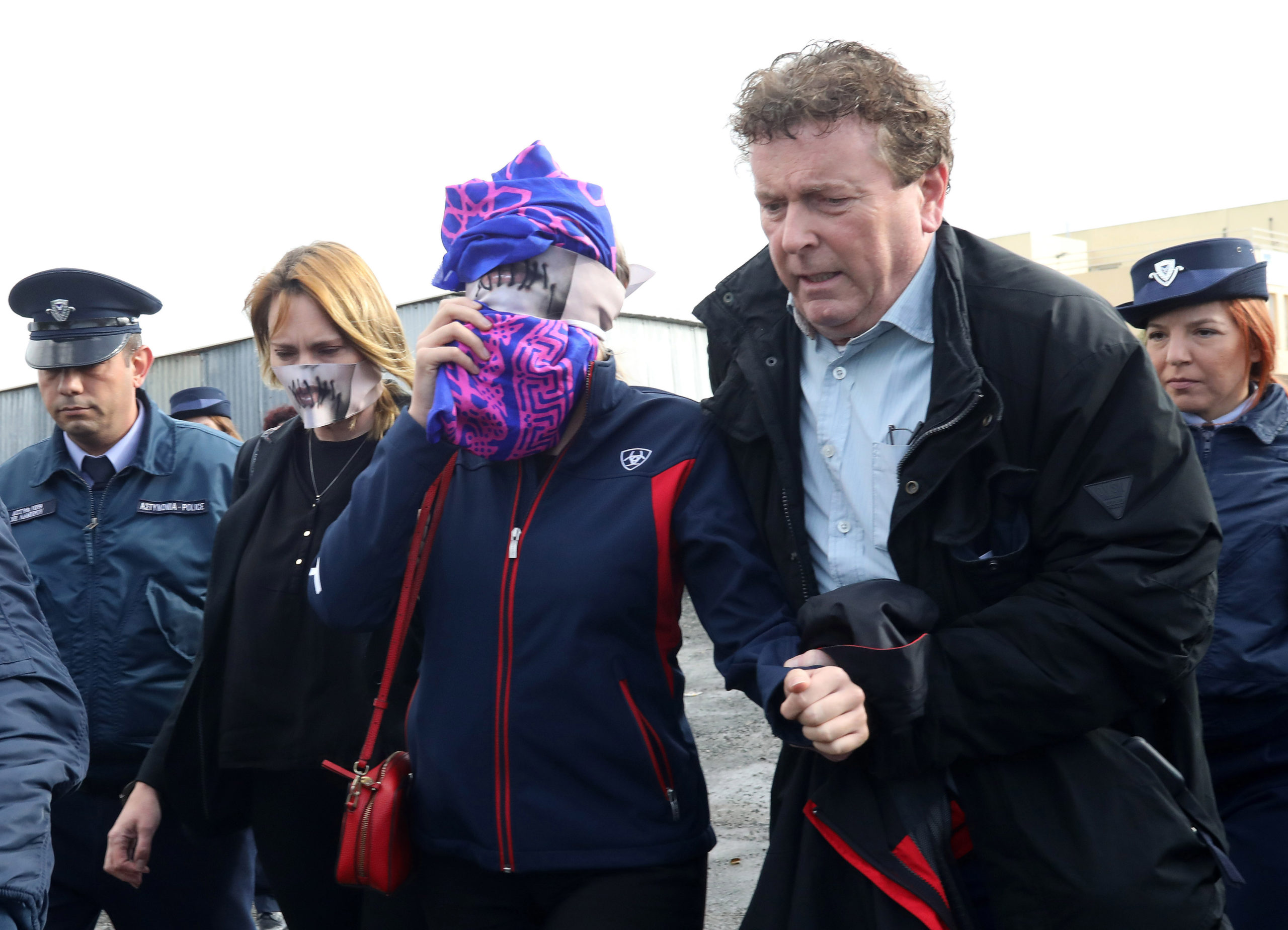Mother of the teenage British woman found guilty of lying about being raped by 12 Israeli tourists, backs a campaign calling on holidaymakers to boycott Cyprus, arguing it is not a safe destination.
Joining the #BoycottCyprus campaign the mother of the 19-year-old woman found guilty of public mischief told BBC radio she supported calls on social media for British holidaymakers to avoid the island.
“My personal view is that’s a good thing to do,” the young woman’s mother said.
“The place isn’t safe – it is absolutely not safe. And if you go and report something that’s happened to you, you’re either laughed at, as far as I can tell or, in the worst case, something like what’s happened to my daughter may happen.”
Immediately after the Paralimni district court announced last Monday it found the 19-year-old guilty of public mischief for lying about being gang-raped in Ayia Napa last July, a campaign to boycott Cyprus swept social media amid fury and accusations of a miscarriage of Justice by Cypriot authorities.
The woman, to be sentenced on 7 January, is facing up to one year in prison, while her lawyers urged for a suspended sentence are planning to appeal the decision.
The case has attracted widespread media coverage in Britain, which accounts for a third of the 3.9 million tourists who visited Cyprus in 2018, the mother pointed out in statements to the BBC.
Meanwhile, Dr Christine Tizzard, a psychologist who assessed woman told British ITV’s Good Morning Britain that she is in desperate need of treatment.
She said the young woman is likely to be experiencing “hyperarousal, emotional numbing, flashbacks, nightmares and hypersomnia.”
Her mother confirmed that her daughter is sleeping 18 to 20 hours a day, while also experiencing hallucinations.
The Cyprus government and the Attorney-general said they would intervene in cases being heard before the courts.
Full Confidence
Government Spokesman Kyriacos Koushios said the government has full confidence in the judiciary and the courts of the Republic.
Attorney-general Costas Clerides argued that any intervention by him would be an obstacle to the establishment of the facts while also interfering with justice.
He was responding to an appeal by two former attorneys general to suspend the case so as not to damage Cyprus’ image abroad.
Clerides issued a statement saying it was up the courts to decide on whether the woman’s allegation about the police and unfair treatment were valid.
He said the woman’s allegation that police coerced her into retracting her rape claim “could not have been left to linger” so he could not move to suspend the trial.
Clerides also said the woman’s insistence that she didn’t get a fair trial is “essentially a legal-constitutional matter” that a court of law must rule on.
The British Foreign Office cast doubt over whether the teenager received a fair trial and said that it would raise the issue with Cypriot authorities.
The woman said that she was raped in a hotel room in Ayia Napa on July 17 and that she was forced to sign the retraction 10 days later while under police questioning.
Famagusta District Court Judge Michalis Papathanasiou said the defendant didn’t tell the truth and tried to deceive the court with “evasive” statements in her testimony.
The judge said the woman had admitted to investigators that she made up the claims because she was “ashamed” after finding out that some of the Israelis had videoed her having consensual sex with her Israeli boyfriend on their mobile phones.
During the trial, defence lawyers criticised the police investigation as “deficient and improper” with detectives making major lapses and omissions in their work while having a mistaken perception of the true facts surrounding their client’s claim.










